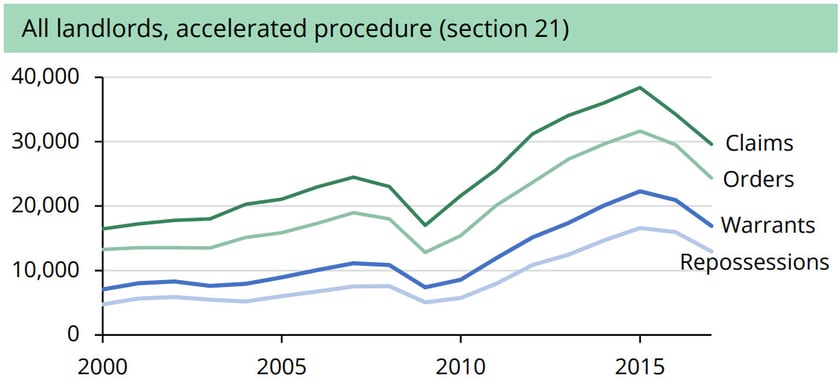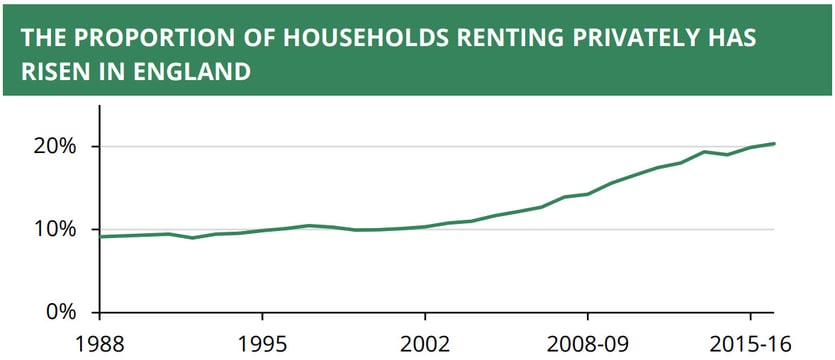Marc Trup discusses the possible impact of ending Section 21
Last week the government made public its intention to scrap short-term eviction notices otherwise known as Section 21, which means that landlords will no longer be able to evict tenants at the end of their term. This news has been met positively by housing campaigners, but has been heavily criticized by landlord associations. To get a better idea of the impact the change in law will have, we’ve got the insight of Arthur Online’s co-founder, CEO and property owner Marc Trup.
| Q |
Why is this news so significant? |
| A |
Section 21 is a vital tool for landlords, it’s the quickest and most effective way to take back control of their property. To just scrap it without proposing any alternatives is a big blow for landlords. A lot of times attention is on tenant issues, and certainly tenants renting from unscrupulous landlords deserve a lot of sympathy and help, but there is not nearly enough focus on how things affect landlords.
Imagine a landlord with a small portfolio and the tenant decides to stop paying rent; the landlord will be saddled with all the costs, including quite possibly mortgage repayments. If the landlord can’t get rid of the tenant quickly, it will cost them a lot of money, and could threaten their livelihood. |
Source: Ministry of Justice, Mortgage and landlord possession statistics: July to September 2018, Tables 8 and 9
| Q |
But Section 8 already deals with violations of the tenancy agreement, isn’t that enough? |
| A |
In theory yes, but in practice, issuing a Section 8 can result in a long and complicated process. The tenant can dispute the grounds for repossession in a Section 8, and this can prolong the eviction procedure, potentially costing the landlords thousands of pounds in the meantime.
|
| Q |
The fact that Section 21 doesn’t require the landlord to give any reason for the eviction seems like the main issue that housing campaigners are most concerned about, what are your thoughts on that? |
| A |
There are measures already in place for illegal or revenge evictions. There is strict criteria for issuing a Section 21, and if it is not met, then it immediately becomes invalid. For example, if a tenant makes a written complaint to the council on the state of their home and is then issued with a Section 21 by their landlord in retaliation, it is not valid. A Section 21 can also be challenged in court, so when a tenant has a legitimate grievance, they can take the case to court and fight their eviction.
|
| Q |
What effect will the change of law have on the property market? |
| A |
Nothing has changed yet, and it’s important to wait and see what the details of the law change are. However, if nothing is done to address landlords’ concerns, then it will have a really bad effect on landlords. Small landlords especially will be most affected, if they have one or two properties, the danger of losing rental income to a bad tenant, or suffering damage to their property is a risk that they may deem not worth taking. Bigger landlords will also think twice about expanding their portfolios given the greater risks involved. |
| Q |
What will be the long-term consequences if Section 21 is abolished and landlord’s concerns aren’t taken into account? |
| A |
Ultimately, I think the law will end up hurting the people it was supposed to protect – the tenants. With less incentive for landlords to get into the property market or expand portfolios, not to mention some landlords selling up, the rental market will shrink. This will mean rental prices going up and consumers having less of a choice in rental properties available – it’s as simple as that. |
Source: English Housing Survey Headline Report 2016-17, Annex Table 1.1
| Q |
What would you advise the government to do? |
| A |
If they are intent on pressing ahead, then at least they should modify Section 8 to make it much easier for landlords to evict tenants for violating their tenancy, then the change in law won’t have too much of a detrimental effect on landlords. It’s about finding balance between addressing the basic rights of tenants with the legitimate concerns of landlords when it comes to safeguarding their investment. The current proposal to scrap Article 21 doesn’t offer that balance. |




